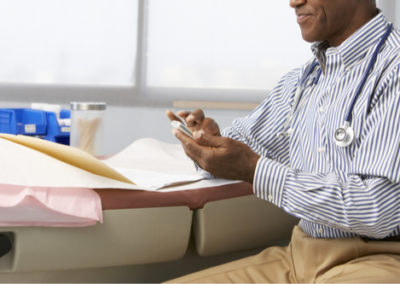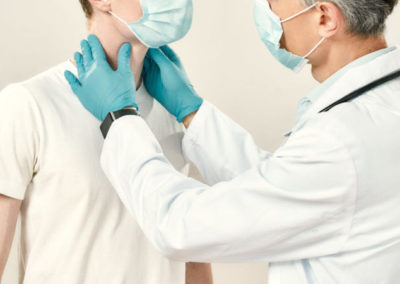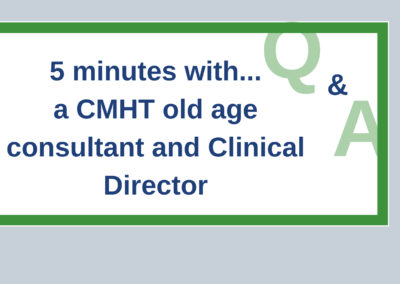‘An acute admission was avoided, and the patient was given the care they needed.’ – Dr Morris.
We spoke with Dr Wendy Morris, a GP in Coventry and Warwickshire ICB who uses Enhanced Advice & Guidance provided by Consultant Connect in their everyday roles to access rapid specialist advice for their patients. They reflected on their use of the Gynaecology Advice & Guidance lines to speed up patient care and discussed the benefits of Telephone Advice & Guidance with us.
How would you have obtained Advice & Guidance prior to the introduction of Consultant Connect?
‘If I needed specialist advice, I would either ring the consultant’s secretary or seek advice from the resident medical/surgical officer. Consultant Connect provides me with immediate access to expert advice and someone who can make things happen quickly.’ – Dr Wendy Morris.
What are the benefits of Telephone Advice & Guidance?
‘I think the service is a very positive development for many reasons. I like that Telephone Advice & Guidance is an approved service with the full backing of the Trust and ICB. I feel less guilty about “bothering” a consultant by phone with this method. Plus, the response is easier and more timely, and the discussion and the patient’s NHS number are recorded, so it’s auditable.
The service is also not dependent on your relationship with the consultant but provides an excellent opportunity to form a rapport with specialists you don’t know.
Every conversation adds to my learning; should a similar clinical issue present another time, then I wouldn’t need to obtain advice on that occasion.’
Patient Examples:
Dr Wendy Morris
‘A 54-year-old female presented with obvious advanced gynaecological cancer, and the two-week wait (2WW) referral had already been made. I tried ringing 2WW, but because this line is not staffed by a clinician, I was unable to move the appointment from 14 days, and the patient was deteriorating.
I used Consultant Connect to contact the Gynaecology Team and was put through to a consultant gynaecologist in seconds. They arranged for the patient to be scanned that day and given appropriate follow-up treatment. This would have otherwise been an acute admission. Because of Telephone Advice & Guidance, an acute admission was avoided, and the patient received the care they needed.’




